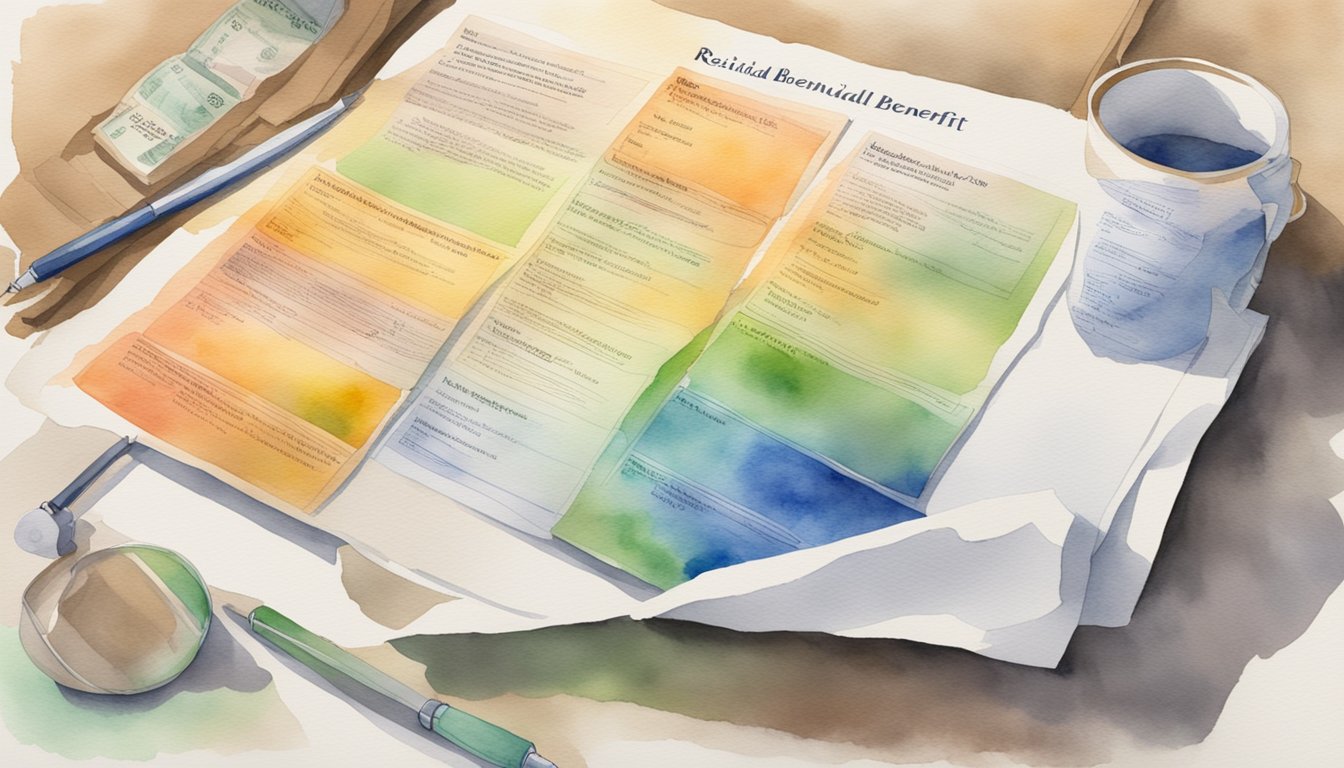Understanding Residual Benefit

A residual benefit provides partial financial support when you can’t work full-time due to disability.
It is essential in bridging the gap between total disability and part-time work.
Definition of Residual Benefit
Residual benefit is a component of certain disability insurance policies.
It pays a percentage of the total benefits to the policyholder who is partially disabled.
This means you can still receive income support even if your disability does not fully prevent you from working.
Typically, this benefit kicks in after a waiting period and is calculated based on your loss of earnings compared to your pre-disability income.
Such coverage ensures you are protected against both total and partial disability scenarios.
Differentiating Total and Partial Disability
Understanding the difference between total and partial disability is crucial.
Total disability means you are completely unable to work, and your insurance covers the full benefit amount.
In contrast, partial disability, also known as residual disability, allows you to work part-time.
Your insurance provides a partial benefit reflecting your reduced income capacity.
Residual benefits are particularly important if your policy terms include specific conditions for partial disabilities.
For example, if your diagnosis allows you to work part-time, you won’t lose all your benefits.
Instead, you will receive a proportionate benefit to support your reduced earnings. Disability Insurance Policies can vary widely, so it’s vital to understand your coverage and terms and conditions thoroughly.
[Keyword] Policy Details

Understanding your residual benefit policy is crucial to ensure you receive appropriate support during partial disability.
These policies cover specific situations and have unique terms that impact your benefits.
Coverage and Benefits
Residual benefits provide financial protection for policyholders who experience partial disability.
Instead of an all-or-nothing approach, these benefits pay a percentage of the total benefit amount based on the percentage of income lost.
If you experience a partial disability that impacts your ability to work, your policy will cover a portion of your lost income.
The benefit amount is adjusted according to your earnings and the extent of your disability.
Most policies also include a waiting period before benefits are paid.
The elimination period refers to the time between the onset of the disability and when you start receiving benefits.
It’s important to familiarize yourself with the specific terms of your policy regarding these periods.
Terms and Conditions
Key conditions of residual benefit policies include the definition of partial disability and how benefits are calculated.
Partial disability typically means you can still work but at a reduced capacity.
The benefit you receive is often a percentage of what you would get if you were totally disabled, based on your monthly earnings.
Many policies require that your income loss meets a minimum percentage, such as 20%.
Additionally, a rider can customize your policy with extra provisions or exclusions.
Examining the terms and conditions of your disability insurance policy, such as waiting periods and the exact coverage details, ensures you understand your rights and obligations.
It’s essential to discuss any specific questions with your insurance company to avoid misunderstandings and to clarify the benefits available to you.
Filing a Residual Benefit Claim

When filing a residual benefit claim, you must provide specific evidence and prepare for potential challenges.
Your goal is to demonstrate how a partial disability has reduced your ability to work and earn income.
Claim Process and Documentation
To start, gather all necessary documentation.
This includes medical records that outline your health issues and how they limit your capabilities.
You will also need proof of the loss of income, such as pay stubs or earnings reports.
Detailed income loss documentation is crucial to support your claim.
Disability insurance companies require clear evidence of partial disability.
Your doctor may need to write a statement detailing your condition.
Ensure all documentation clearly shows the difference in your monthly income before and after the disability.
Consulting a disability attorney can make a difference.
They help with the paperwork and ensure your claim meets all requirements.
They may also advise on the potential max benefit you can receive and help calculate the percentage of income loss due to your disability.
Managing a Denied Claim
If your claim is denied, don’t lose hope.
You have options to appeal.
Understand the disability insurance company’s reasons for denial, which can be found in the denial letter.
Gather additional proof to support your appeal, such as more medical records or updated statements from your doctor.
Confirm that your documentation addresses the reasons for denial directly.
An experienced disability attorney can assist in navigating the appeal process.
They will help you negotiate with the insurance company, ensuring all necessary documentation is presented effectively.
This legal assistance increases your chances of successfully overturning a denial.
Remember that proving your loss of income and residual benefits eligibility requires meticulous attention to detail and expert guidance.
Frequently Asked Questions
Residual benefits in disability insurance cover partial loss of income due to disabilities.
This section answers common questions about eligibility, calculation, differences between residual and total disability insurance, and impacts on payouts.
How is a residual benefit calculated in a disability insurance policy?
Residual benefits are calculated based on the loss of income that results from a disability.
This is often measured by comparing pre-disability income to current earnings after the disability.
The payout is usually a percentage of the total disability benefit outlined in your policy.
What are examples of situations where residual benefits apply?
Residual benefits may apply if you suffer from physical injuries, illnesses, mental health conditions, or chronic disorders.
For instance, if you can work part-time but not full-time due to a disability, you may qualify for residual benefits.
How does residual disability insurance differ from total disability insurance?
Residual disability insurance provides benefits for partial disabilities that reduce your ability to work but do not prevent it entirely.
Total disability insurance, on the other hand, pays benefits only when you are completely unable to work.
Thus, residual benefits are more flexible for partial loss scenarios.
What constitutes eligibility for residual benefits in a disability claim?
To be eligible for residual benefits, you usually need to demonstrate a loss of income due to a disability.
Policies often require that you lose at least 15% to 20% of your pre-disability income.
Eligibility criteria vary between different insurance providers and specific policies.
What is the threshold to receive residual benefits from an insurance policy?
The common threshold to receive residual benefits is a loss of at least 15% to 20% of your income.
This varies by policy but typically you must show that your earnings have been significantly affected by your disability.
Review your specific policy details for exact figures.
How can residual benefits impact the payout from a policy after returning to work?
When you return to work part-time after a disability, residual benefits can supplement your reduced income.
The policy will provide a percentage of the total disability benefit, easing financial stress as you transition back to full-time work.
This allows you to maintain financial stability while recovering.






